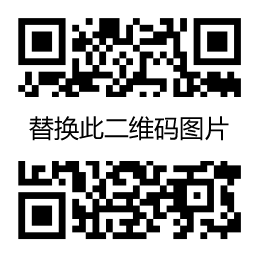教学建议
教学内容分析
本单元的主要交际功能项目是“禁止和警告”,通过有关遵守交通规则的话题体现出来。语法项目是(l)情态动词must和mustn’t的用法。(2)由when,before,after引导的时间状语从句。(3)由if引导的条件状语从句。
Lesson 65三部分的内容在训练如何遵守交通规则的同时引出本单元重点语法项目:情态动词must及mustn’t;when,before引导的时间状语从句及if引导的条件状语从句。这是本单元的主题,必须让学生反复练习。
Lesson 66是阅读课文,叙述一个外国妇女在候诊室等候就诊的故事,从而达到宣传公共道德的目的。内容幽默,阅后可组织学生讨论文前的三个题目,让他们发表自己的看法。
Lesson 67是有关生病的内容,对话有意识地重现了must, mustn’t 和if从句,同时学习和复习了有关生病、看病的词语,从而为下一单元的教学作好了准备。第二、三部分着重练习when,before,if的用法。
Lesson 68是一个有关家庭聚会的小故事。本课的教学目的与前面第66课相同,宣传遵守公共道德。在表现手法上也与第66课相同,都是采用最后点题的手法,从而使课文充满幽默感。
课文导读
本单元的两篇课文是两个很有趣的故事,通过学习第一篇《The queue Jumpers》让我们能够掌握有关排队等候看病的一些知识,并养成排队等候的习惯,讲文明讲礼貌不做加塞者。学习第二篇《You must stop making so much noise》后我们可以了解到西方人的一种社交场合party(聚会),并从中学会讲究礼貌,在拜访别人,或举行聚会时要把握好时间分寸,不能影响别人的生活。
教学情态动词must的用法
情态动词must表示“应该”,“必须”。否定式must not=mustn’t表不“不应该”,“不许可”,“不准”,“禁止”等。本单元mustn’t主要用法是表示“禁止和警告”。在回答must的问句时,否定式常用need not=needn’t或don’t have to,表示“不必,”而不用must not=mustn’t。因为mustn’t表示“不可以”。表示推测“一定”,“必定”只用在肯定句中,老师在向学生简要讲明其主要用法以后,通过大量的操练让学生掌握。例如:
1. You must look after yourself.
2. We must finish our homework on time.
3. Li Ming must wait for his father at the bus stop.
4. They must clean their classroom every day.
5. We mustn’t laugh at others.
6. You mustn’t draw on the wall.
7. He mustn't leave to early.
8. They mustn’t climb trees.
9. A: Must she go shopping tomorrow?
B: Yes, she must./No, she needn't.
10. A: Must we do the cleaning this afternoon?
B: Yes, we must./No, we needn't.
11. When and where must we get on the train?
12. Who must go to the meeting?
13. Who must I ask about the way to the TV station?
14. Whose car must the man clean?
15. Why must I stand in line?
教学由when, before, after引导的时间状语从句和由if引导的条件状语从句
本单元的第二个语法项目是由when,before,after等连词引导的时间状语从句和由连词if引导的假设性的条件状语从句。可用英译汉、汉译英或填空等方式进行口头和书面练习。
1.When
(1) When she reached home, she had a short rest.
(2) Will you please lock the door when you go out?
(3) When he was a middle school student, he liked playing football very much.
(4) Don't run the machine when something is wrong with it.
2. before
(1)I must finish my homework before my mother comes back.
(2) You must have something before you go to school.
(3) Where did you live before you moved to Beijing?
(4) Please take these things away before you leave the room.
(5)Before I left, I rang him up.
3. after
(1) They go out for a walk after they have supper.
(2) The woman looked worried after she found her ticket lost.
(3) I went to bed after I finished writing my diary.
(4) What do you do after class is over?
(5) They talked about the party after the people left.
4.if
(1) If it doesn't rain tomorrow, we will leave for Beijing.
(2) If you jump the queue, other people will not be pleased.
(3) If you like my pen, I will give it to you.
(4) If he studies hard, he will catch up with his students.
在练习的过程中老师要提醒学生,由when,after,before引导的时间状语从句和由if引导的条件状语从句将来时用一般现在时来表示,而主句用将来时。
阅读训练教学
第66课讲的是一个幽默的小故事,描述发生在医务所里的一件令人啼笑皆非的事情。情节颇有趣。单词不多,内容易懂。教学时可先让学生听l-2遍录音,然后让学生在老师规定的时间内进行快速阅读,最后让学生看挂图扼要复述课文内容,检查学生快速阅读的效果。
学法建议
1.学生可以先设置一个医务所的场景,然后根据挂图内容,分组进行问答训练,以便进一步掌握课文内容。
2.本单元的语法项目首先要牢记他们的基本用法和含义,然后反复进行口头和书面训练。特别是含有must的一般疑问句,其否定回答不能用mustn’t,应该用needn’t或don’t have to。时间状语从句和假设性的条件状语从句将来时用一般现在时代替,但主句要用将来时。
重难点及疑点分析
重点及难点:
A.单词及短语
hit, queue, hurt, laugh at, mistake, reading room, alone, surprise, telephone
1. queue的意思是“行列”“长队”。stand in a queue = stand in line
2. hurt在本单元中作及物动词,是“受伤”的意思,作不及物动词用时表示疼。Does your leg still hurt?Not at all.
B.句子
1. Well, you mustn’t cross the road now.
2. She sat nearest to the doctor's door.
在本句中nearest是副词near的最高级,副词最高级前省去定冠词the。
3. You must wait for your turn.
4. Do you think it necessary for us to learn to wait?
本句中的it作形式宾语,necessary作宾语补足语。
5. She was in the city to visit her daughter.
C.语法
1.情态动词must的用法。
2.时间状语从句和条件状语从句。
疑点:
A.单词及短语
1.get on / off的意思是“上/下车/马”等,on和 off都是介词,代词放在其中间。如:When the bus stopped, he got off.
2.arrive是不及物动词,是“到达,抵达”的意思,与in或at连用。到达大地方用in反之用at。相当于reach或got to。如:arrive in Beijing,arrive at a village
3.enjoy oneself意思是“玩得愉快”,它相当于have a good time。
B.句子
1. If there is a lot of traffic, you must wait.
if引导的是假设性的条件状语从句,将来时用一般现在时表示,主句仍用将来时。例如:
If it doesn’t rain tomorrow, we will go swimming.
2. At the head of the queue was an old woman.
这是一个倒装句,倒装句分为全倒装和半倒装。此句是全倒装,条件是主语必须是名词而不是代词,又如:In front of the house sat an old woman.
3. You mustn’t eat anything until you see the doctor.
“not…until”意为“直到……才……”主句中的谓语动词必须是中止性动词。上述句子中until是连词,连接句子,until也可作介词用,后接名词(短语)。例如:
She didn’t tell me about it until yesterday.
until连接的是一个时间状语从句,其将来时用一般现在时表示。The boy won't go to bed until his mother comes back.
4. You must stop making so much noise.
stop doing sth表示“停止干什么”。而stop to do sth则表示“停下来去干什么”。
C.语法
1.含有情态动词must的一般疑问句,其否定回答不用mustn’t,而是用needn't/don't have too。
-Must I be home before eight o'clock?
-No, you needn’t. /No, you don’t have to.
2.由when,before,after等连词引导的时间状语从句其将来时用一般现在时来表示,主句仍用将来时。
能力训练教学
1.本单元首先要使学生了解有关的交通规则,然后围绕这一中心,对有关的交通警句进行练习。
2.在复习、巩固上个单元情态动词can,may的基础上,训练和掌握情态动词mu
声明:有的资源均来自网络转载,版权归原作者所有,如有侵犯到您的权益 请联系邮箱:yuname@163.com 我们将配合处理!
原文地址:Unit 17 You must be more careful!发布于2021-10-22

